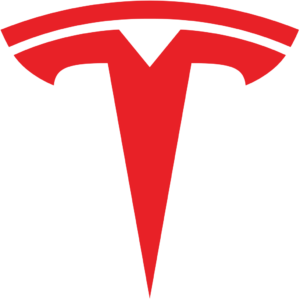Volkswagen is Gefickt!
Part of the problem at VW is that its management doesn’t yet understand that software is the key to value in today’s and tomorrow’s electric vehicles. That’s where the value is added, through over-the-air updates and options, particularly after the initial vehicle sale. Given software’s typical 80% to 90% gross margins, those margins pave the way to increased profits. It’s also that software capability that gives you customer access, and all-important customer driving data. Without capable software VW can’t easily add post-sale value in over-the-air-updates on a routine basis. So instead of recognizing its software and hardware design and development organization’s critical strategic importance and giving it a far more senior management role in the company’s overall organization, software design and development is still largely considered just a technical function at VW.
VW’s goal is to have its “VW.OS” operating system developed by 2023, starting from essentially nothing today! VW’s aging senior management also doesn’t realize that software development never ends – – it is never done! Furthermore, VW’s senior management is clueless about software development, coding, artificial intelligence (AI), deep machine learning and neural networks, and computer chip design. How do they have any relevant experience or expertise to guide and oversee their company’s software, hardware, and AI efforts, much less the development of a highly integrated VW software/hardware platform that will be competitive with Tesla’s software and hardware platform — over eight years and counting in the making, developed by brilliant Silicon Valley software engineers. Furthermore, Tesla has over four billion miles of real world customer driving testing under its belt. No other electric vehicle company comes within two to three orders of magnitude of this critical data accumulation experience. By the time VW gets anything software related accomplished, Tesla, of course, will be even further ahead, as Musk and his organizations never stand still.
Just as I was posting Part 1 of this article, Automotive News Europe published an article with a suggestion by an Audi 19-year veteran and Audi’s former head of its electric/electronics group Ricky Hudi. In order to change the balance of knowledge of any company’s supervisory board – particularly auto manufacturers today, Hudi proposes that: “… 50 percent of the supervisory board is made up of people with those traditional (engineering, business, finance, and legal) credentials and the other half is made up of people with [a] great deal of experience in software, electronics, and semiconductors……Once you initiated this at the supervisory board level, it would go like a flash through the entire organization……That is the only way to sustainably transform a traditional business.”
Hudi’s suggestion is sensible, but does anyone think any current supervisory board members would easily give up their position and power? And where will such companies quickly find the newer talent he specifies? In most cases they will be outsiders (to the company and perhaps the industry) who will take some time to learn the business and overcome (perhaps) the aforementioned German resistance to company outsiders. No matter how it is done, it will be a slow process for one generation to replace another. Too slow for many companies!
In place of such a drastic and disruptive move, VW could have taken a page out of Elon Musk’s recruiting playbook and simply acquired a US-based software company in Silicon Valley or perhaps Austin, TX for instance. In one fell swoop VW would have acquired world class software engineering talent. It then could have sent the top ten percent of its German unit to the US to live, work, and learn at that new organization. You have to go where the talent is, particularly if it is not available in Germany and you are way behind other auto industry companies. It doesn’t matter where software engineers live – their work is cloud-based, not geography-based.
In January of 2017, Elon Musk stole Germany’s top manufacturing engineering company Grohmann Engineering right out from under the noses of German industry. Immediately after Grohmann Engineering became a Tesla company, Musk ordered the company to stop all work with Mercedes Benz and perhaps BMW as well.
VW could have bought Zoox before Amazon did. It could still buy Aurora. Both these companies are light years ahead of VW’s current EV software platform efforts. Waymo has been losing money for Alphabet/Google for years. It has recently started working with FCA, especially on its RAM commercial delivery vans. FCA has recently announced that Waymo is its exclusive provider of Level 4 autonomous driving capability for its passenger cars. Nvidia is already working with Mercedes.
Meanwhile Tesla marches on, building its Giga Berlin plant 18 miles southeast of Berlin at an astounding pace, especially considering Germany’s infamous bureaucracy and regulations. Tesla is already hiring for Giga Berlin and it is likely that some of VW’s Wolfsburg software people would prefer to move 120 miles East and work for Tesla (if they can get hired!), and not go south into BMW/Audi territory in Bavaria and nearby Mercedes Benz territory in Stuttgart. In addition, Tesla intends to establish a design center in Berlin. What young German engineer wouldn’t love to work for Tesla? Regarding VW’s ability to hire qualified software engineers, an anonymous VW employee commented: “It’s an absolute disaster. We just can’t get [software] people.” And that was before Tesla started hiring for its new Giga Berlin plant and Berlin design center!
VW’s most significant current problem is not having a modern integrated software platform for its electric (at a minimum) vehicles that is anywhere near competitive with Tesla’s. It’s more than a software problem because unique and powerful hardware is required to operate competitive electric vehicles’ software on a real-time basis. Further with almost every VW senior executive having decades of ICE vehicle experience, many of them might be thinking that they just need to put some batteries and one or more electric motors in a vehicle. They don’t sufficiently understand the need for one integrated and continually refined total powertrain system made up of the battery cells (or pack), the battery management system (heating, cooling, charging control), the inverter(s), the electric motor(s), the drive unit(s), cabin HVAC, and the regenerative braking system. German auto executives have complained that when a vehicle “just has an electric motor” there is an insufficient variety of means to differentiate amongst models and brands. Tesla and its customers don’t seem to recognize that problem. And just maybe VW would be far more profitable by eliminating the variety, cost, and complexity of its many brands, models, and 124 manufacturing plants!
There are many other signs of continuing VW trouble and management confusion. While Rome (or rather Wolfsburg) is burning, VW Brand CEO Brandstatter, betraying his 27 year VW tenure, has already been quoted by Alex Voigt in a tweet as saying on or about July 19th: “Investments shall only be made when legally required.” This statement is in reference to VW complying with the EU’s emission laws. A German citizen, replying to CleanTechnica writer Alex Voigt’s tweet of the above statement interpreted Brandstatter’s statement as follows: “We will produce and sell BEV [battery electric vehicles] only when the EU introduces a serious law about emissions. [For] Now we can manage it by offering only [a] few BEV[s] just to lower the average CO2 content on our entire fleet”.
About a month earlier on Jun 17th, 2020, again Voigt quoted Brandstatter: “We have always said that in the long term we will continue to have different types of drive trains equally in our product line. Every customer can choose the technology that best suits their mobility needs.” To which Voigt replied: “That sounds like BMW and not VW.”
On June 18th, VW had to walk back Brandstatter’s remark by officially responding: “Volkswagen will continue to push ahead with the Strategy 2025+ and the associated electric offensive. Ralf Brandstatter stands unreservedly behind the course set by Herbert Diess.” Seems like VW continues to have considerable resistance to their electrification program in its senior-most ranks! What would you expect from a 27 year VW veteran with ICE in his veins, an industrial engineering background, and who has primarily been a procurement executive at VW? This lack of strategic executive team harmony will seriously impede VW’s efforts to field competitive electric vehicles in time to be a major competitor in the global BEV marketplace.
VW is scrambling to secure a supply of batteries to fuel (no pun) its ambitious electric vehicle plans that call for a total of 300 Gigawatt hours capacity by 2025, and double that by 2030. Already Audi is short of batteries for its e-Trons as Porsche’s Taycan have received first battery priority in the VW group. VW has almost every major electric vehicle battery supplier as its “partner” including startup Northvolt (where VW has a 450 million Euro investment in Northvolt’s new battery plant in Sweden), LG Chem, Samsung, CATL, and South Korea’s SK Innovation (SKI).
It is battery supply agreements with SKI that are the source of much concern by VW and Ford at this point as LG Chem has sued SKI in US Courts for stealing battery trade secrets, asking the International Trade Commission (ITC) to prevent SKI from producing battery cells in the US. The ITC issued a preliminary ruling for LG Chem, with a final ruling due October 5th this year. SKI is currently building one new battery plant in Georgia to serve VW’s ID.4 production in Chattanooga, TN, and plans to build a second plant in the US to supply Ford’s electric vehicles. VW and Ford are begging the court for a ruling in SKI’s favor!
It’s no exaggeration to say that the overall replacement of ICE-powered vehicles in the coming decade will be limited by the supply of batteries for electric vehicles. There simply aren’t and won’t be enough electric vehicle batteries to accommodate the demand. Those manufacturers late to the party with their electric vehicle plans, supply chain participants, and purchasing commitments will suffer the consequences. Some electric vehicle manufacturers are building their own battery plants, usually in partnership with an established battery manufacturer, such as GM is doing with LG Chem in Lordstown.
As an additional drain on VW’s resources and time, it has established an alliance with Ford Motor Company. This alliance is to share development technology and cost in developing electric vehicles. Ford also has an (autonomous) electric vehicle partner Argo AI in which VW will invest about $3 billion. Under this investment agreement, VW is transferring its 200 employee Audi Autonomous Intelligent Driving (AID) division to Argo AI in Munich. Say what?
Now, in another perplexing move, VW has created a new Audi organization named Artemis. According to TechCrunch (and CleanTechnica) articles: “Its purpose is to bring electric vehicles equipped with highly automated driving systems and other advanced technology to market faster.” Markus Duesmann is quoted in the CleanTechnica article as saying: “The first assignment for Artemis will be to ‘develop a pioneering model for Audi quickly and unbureaucratically’ [these words Duesmann’s]” As CleanTechnica points out: “Apparently adding yet another layer of bureaucracy is just the ticket for Audi’s dilemma. What does Artemis have that VW doesn’t have already?”
Amidst all the turmoil described above, there have been several senior VW executive changes lately. First, Diess’s demotion. Second, Senger’s demotion/“reassignment” Third, the CEO of Traton SE (comprised of MAN and SCANIA), VW’s truck unit, lost its CEO Andreas Renschler and two Board members. Fourth, Thomas Sedran was reassigned to a lesser operation after having headed up VW’s light-commercial vehicles unit and serving as a critical VW executive in its alliance with Ford. The key factor here is that all four of these fired, demoted, or “reassigned” VW executives were brought in from outside the VW organization to speed up change and vehicle electrification within VW.
VW needs state-of-the-art software and computing skills. So, it is getting rid of AID, transferring its current Car Software.Org unit to Ingolstadt, while creating Artemis at Audi? And the former advocate and key player in VW’s Ford alliance just got reassigned to a lesser job? The VW group seems to be flailing about in every possible direction! Soap opera drama, vicious political infighting, resistance to change, national politics, apparently disparate or conflicting strategies – VW staggers around while Tesla and the Chinese in particular are moving with blinding speed, laser-focused on an electric vehicle future. Go figure!
Just a couple of further woes for VW while we are at it. In the first half of 2020, VW group sales were down 27.4%, thanks mainly to the COVID-19 pandemic. That’s about 1.5 million vehicles! In particular Audi sales were down 22%. That’s trouble for VW, especially because while overall sales in Europe were down markedly, sales of plug-in hybrid and battery powered electric vehicles significantly increased in Europe in that same period, significantly aided by some European governments’ incentives for low or zero emission vehicles. All this despite COVID.
Lastly, at least for this article, VW this year became the world’s most indebted company. In a study of 900 of the world’s top companies, VW, the number one vehicle producer in the world by volume, came out at the top of the list with a total of $192 Billion in debt. Not surprisingly, four other global auto manufacturers were in the top ten – Daimler #3 with $151 Billion of debt, Toyota #4 at $138 Billion, Ford #7 at $122 Billion, and BMW #8 at $114 Billion. (GM is at $81.5 B) To place VW’s debt in some perspective, its total Group sales in 2019 were $283.4 Billion.
I do think VW will persevere in its mission to become all-electric – perhaps not by 2026, more likely by 2030. After, they are partially owned by the German government! VW will not be allowed to fail — it would be a national disgrace and political disaster. The opening of Tesla’s Giga Berlin and its Berlin design center and its plant pumping out massive quantities of Tesla’s highly desirable Model Ys (and perhaps a new European small (need I say, Golf-sized) car will be another splash of ice water in VW’s face and a substantial shock to its sales and financial condition. The question is the extent to which VW’s sales and brand loyalty will be damaged by its apparent confusion and delay? How will that delay enable competitors (Tesla and others) to get a foothold in the conquest of VW customers around the globe.
As a manufacturing strategy, operations, and supply chain management consultant, it is clear to me that VW is ripe for a radical downsizing and rationalization. Too many plants (many old), too many vehicle models and brands, too much cost, too much complexity in organization and operations, top heavy with aging executives out of touch with the world of Elon Musk, Tesla, and the coming age of free electricity and dominant electric vehicles. Where is VW’s and Germany’s Elon Musk when they so desperately need him ….. or her.
Some combination of Elon Musk, Jack Welch, Steve Jobs, Attila the Hun, and Mother Theresa would do………..
Image courtesy of Pixabay
Your feedback in the form of comments or suggestions are welcome in the comment window. Thank you for following my blogs on this site and for participating in my blogging community.





One Response
Wow! I always love a good fiction and intriguing novel. Oh wait, this is a real non fiction story?
Thx again for putting the VW story in perspective!